Auto Bust At Heart Of Global Downturn Hits Oil Demand
John Kemp, the senior market analyst of commodities at Reuters, published a new report that details how global vehicle production is falling at the fastest rate since the financial crisis, leading to depressed manufacturing output, freight, and the consumption of energy and other commodities.
The Organization of Motor Vehicle Manufacturers (OICA) reports that global auto vehicle output weakened last year by 1%, the first time since 2009, and the third drop since the Dot Com Bust.
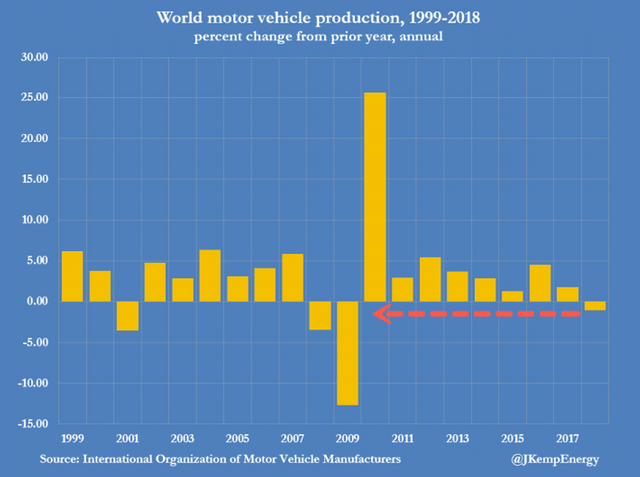
The epicenter of the auto bust is in China, India, and Germany. Production was slightly down in the US and up in Japan.
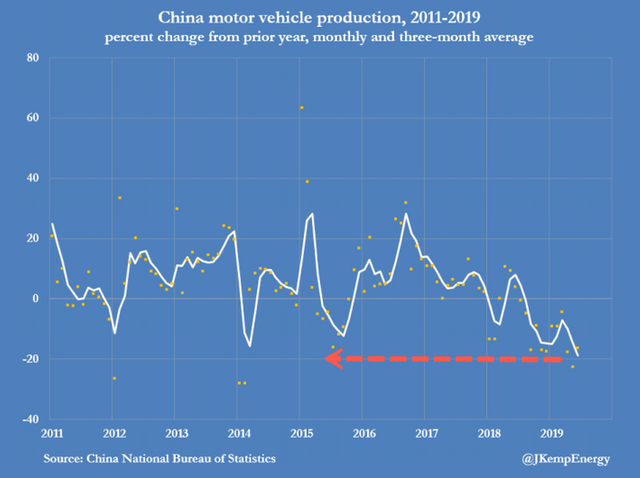
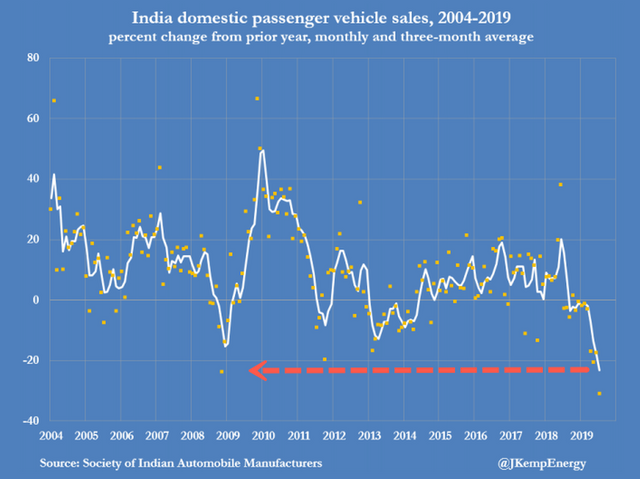
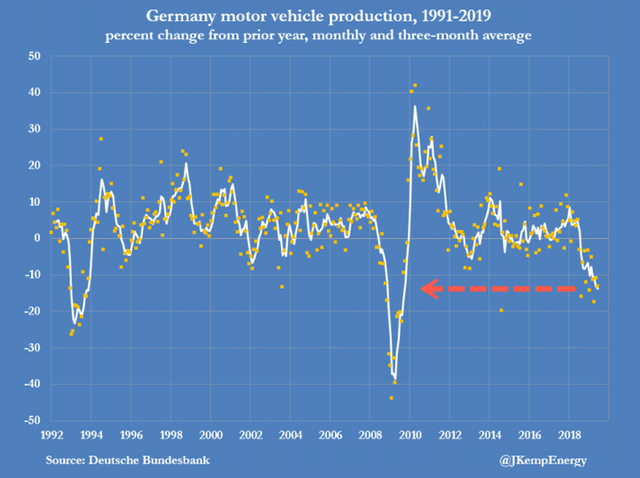
Global shifts in consumer demand of autos have rippled through the supply chain, all the way to manufacturers, which by the way, is the beating heart of the global economy.
"Motor manufacturers are among the world's largest consumers of energy and raw materials, intermediate products such as plastic, steel and aluminium, and services such as marketing and advertising," Kemp said.
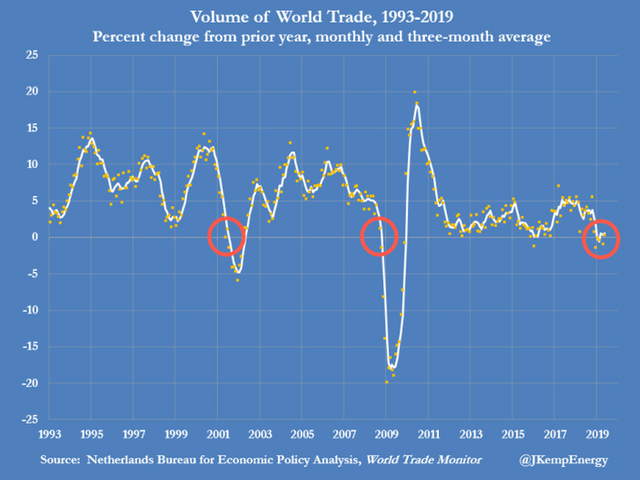
The industry is an essential source of durable capital goods for major manufacturing hubs, centered in Asia, Europe, and the US. It's a producer of high-value exports for countries, able to produce high wages and drive millions of people into the middle class.
But as soon as fluctuations in consumer demand are seen, the transmission of a bust cycle ripples through the supply chain and detonates at the manufacture, but can also have a more significant impact on producers of energy and other commodities.
Weakness in the global auto industry has pushed global freight demand lower and led to declining demand for petrol fuels, especially diesel.
Growth in worldwide vehicles could be stagnating, which would have severe consequences for the US and OPEC countries who extract crude and process it into refined fuels. And that's maybe why crude and crude product stockpiles are near record highs across the world.
The industry's problems have been building for the last several years, could explain why oil consumption across the world has been in a "severe slowdown" since mid-2018.
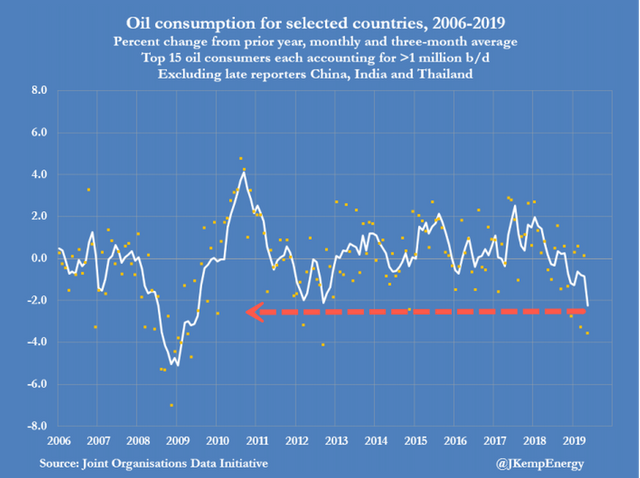
Kemp noted that China's vehicle output plunged -13% in 1H19 and Germany hit levels not seen since 2009.
As we have detailed before, India's auto production has gone bust, down -11% YoY from April to July. This has led to hundreds of thousands of job losses in that period.
Kemp said, "plunging vehicle production has been a major contributor to the weakness in global manufacturing and freight reported since the middle of 2018."
The shift in consumer demand rippling through global supply chains of auto manufacturers will continue through 2H19 into 1H20.
In some cases, the downturn in auto production, especially in India, could last until 2021.
With that being said, oil consumption growth isn't likely to accelerate again until production troughs and turns back up. This could take several years.
https://www.zerohedge.com/news/2019-08-15/auto-bust-heart-global-downturn-hits-oil-demand
97.26$ has been spent to promote this content using Steemium.
Learn more here!
Bad news for the oil industry, but good news for the environment. People are turning away from oil and into greener energy sources.
China, one of the epicenters of the fall, is constructing new subway lines across its provinces and its people are becoming more aware of environmental problems. Even as vehicle sales fall, Tesla has actually sold well in China: https://ir.tesla.com/static-files/1e70a30c-20a7-48b3-a1f6-696a7c517959
Thanks for the post.